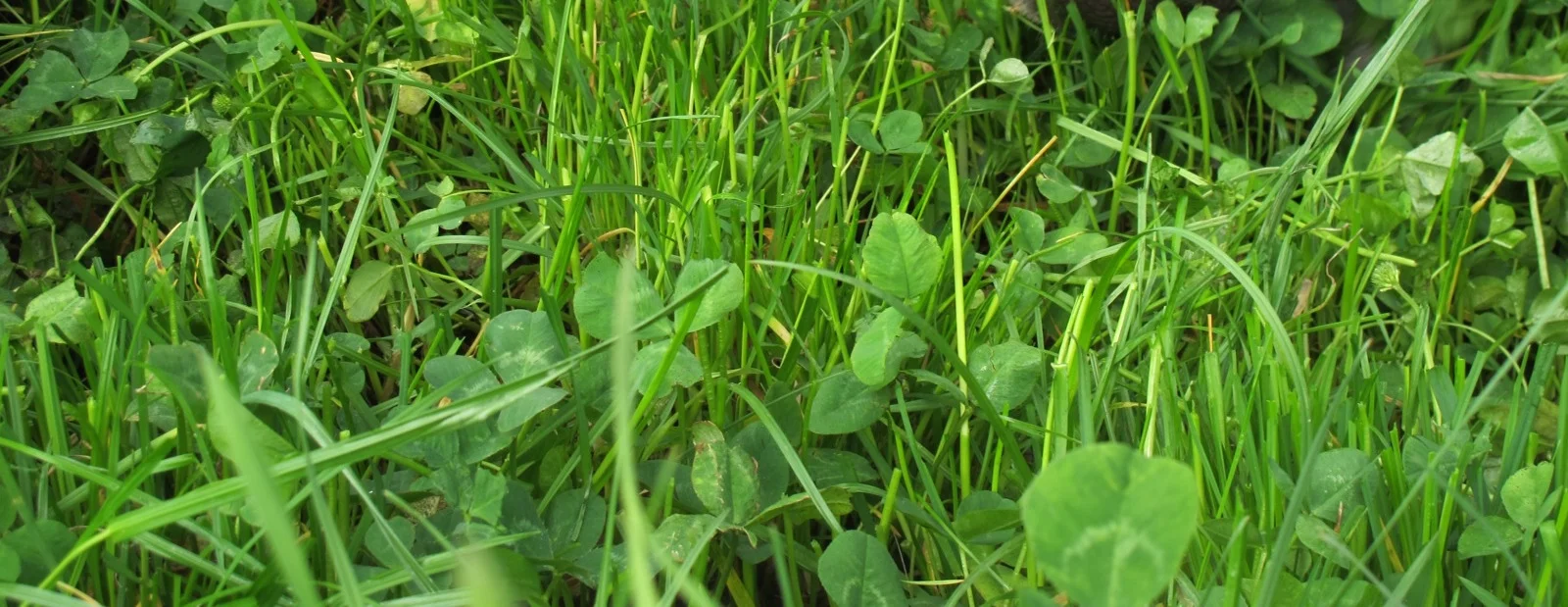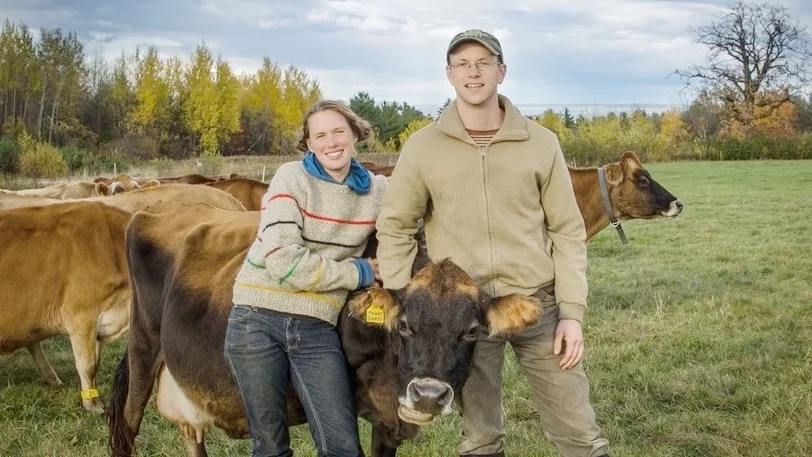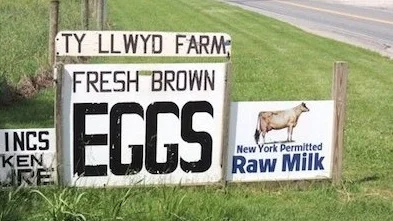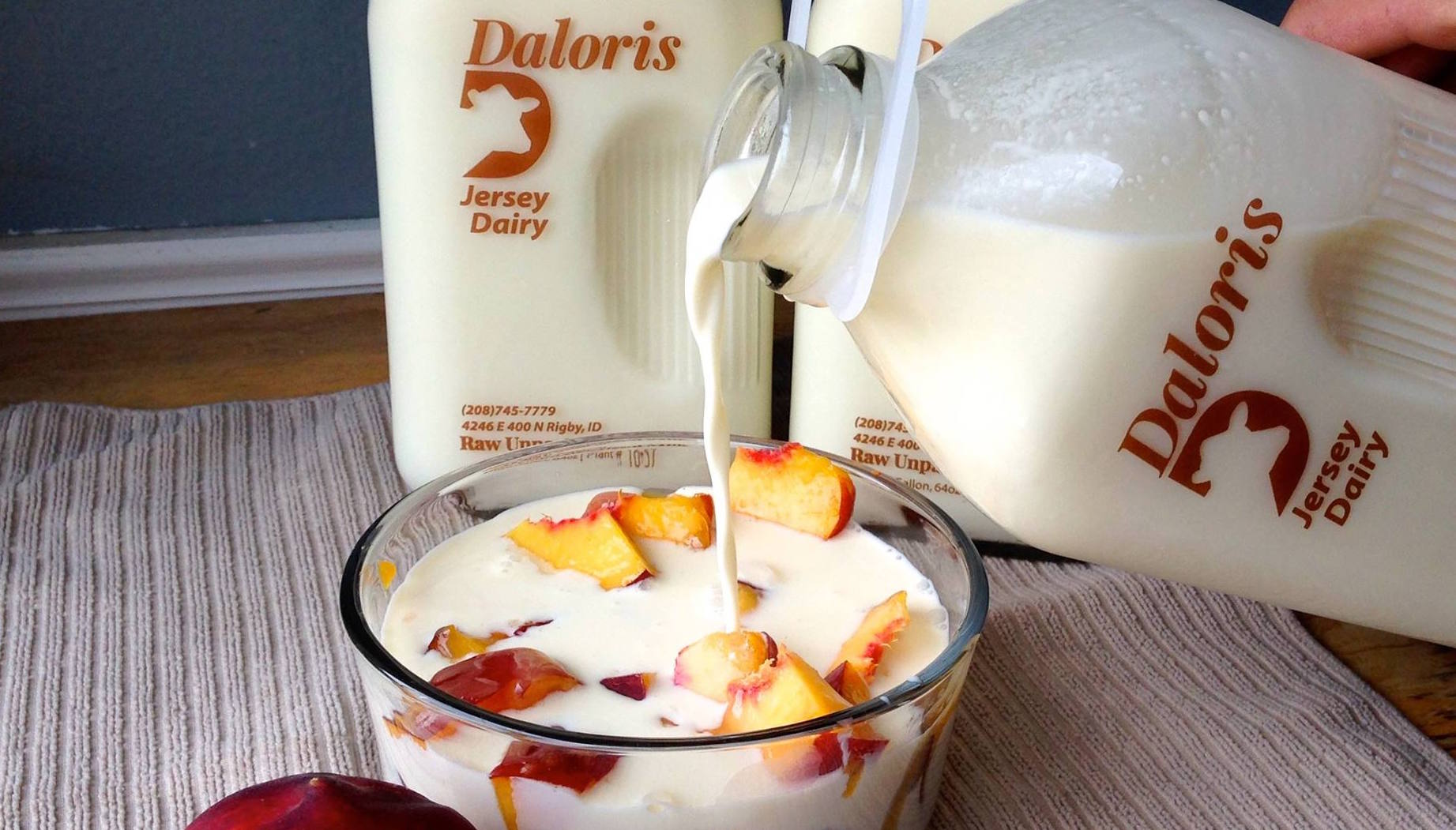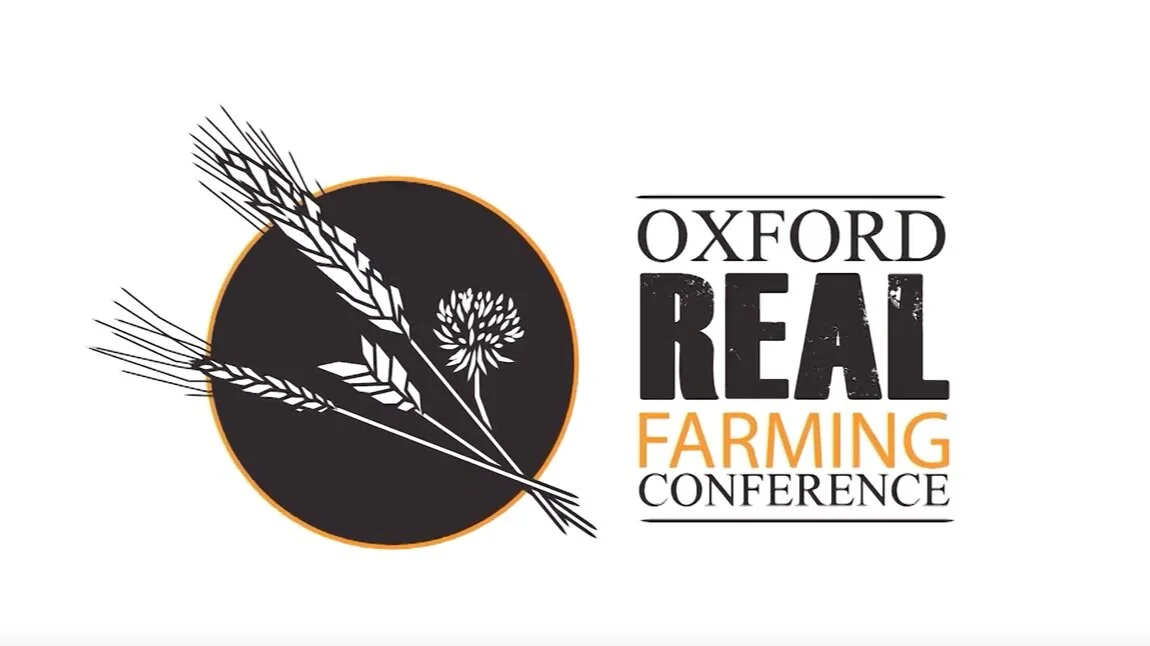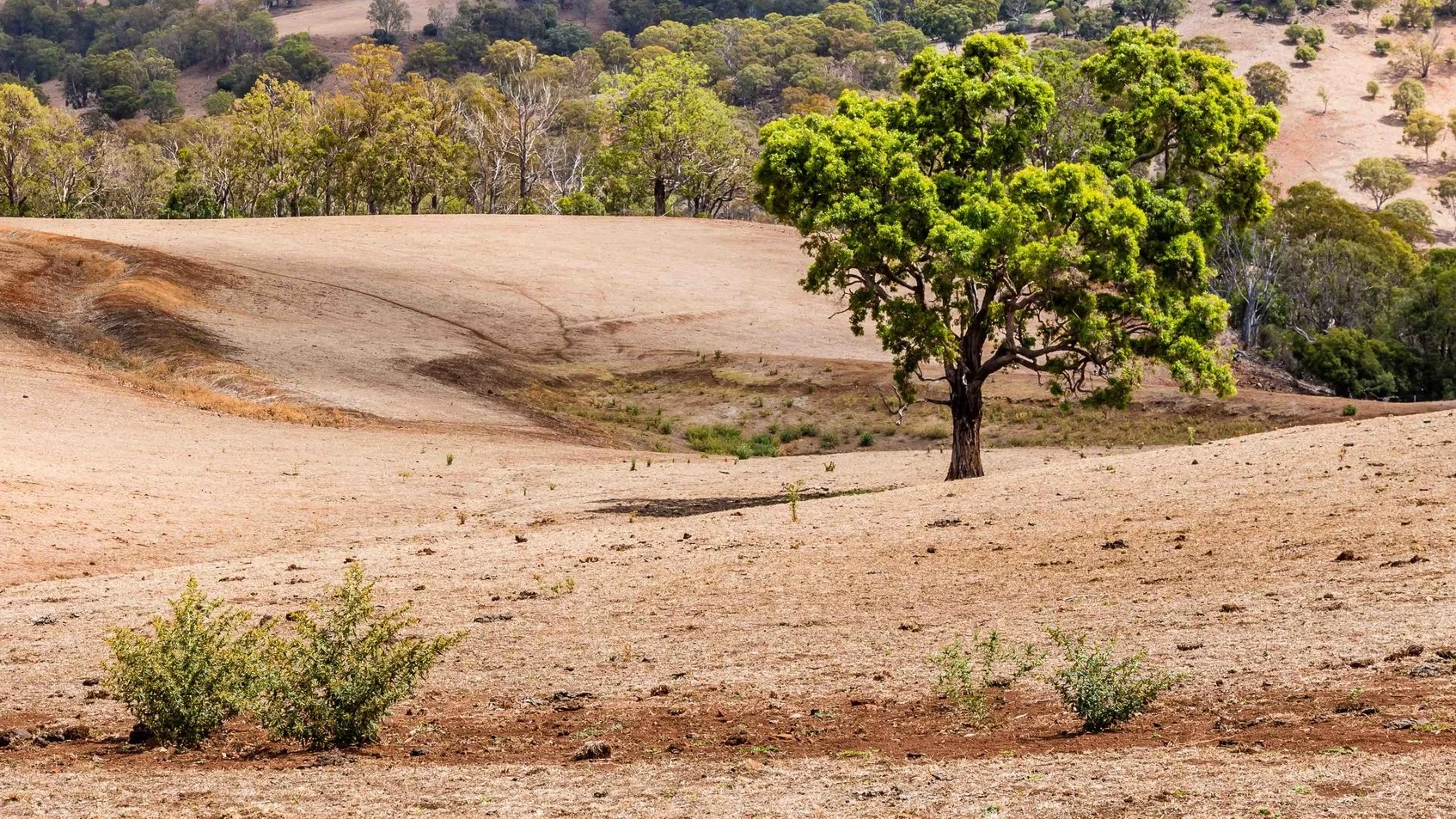Earlier today ABC’s Landline showed a couple of very confronting stories about animal farming that will likely be remembered as a pivotal point of change around issues that have been simmering, and ignored, for years.
It’s about community values that have changed, and agricultural practices that have not been able to keep up due to restrictive regulations and resistance to change. Thank you Landline for the courage to speak up about these issues!
Raw milk supporters are familiar with the intense desire for change, and the desire for the availability of this valuable food, while also feeling frustrated with waiting for it to manifest in our reality. It may feel like a stalemate for some as we anticipate the next big move on the board of life. It is important not to look too far ahead, otherwise we may miss some vital steps.
There is a necessary psychological transformation we have to move through as a society.
Strategy isn’t necessarily about what perfect move to make next, but learning to go with how the pieces on the board change constantly and the synchronistic events. Life has ebbs and flows, and there will always be times of opportunity, and times to take a step back. The game is about going with the flow and being adaptable to change in the present moment. Trying to force things can be counter-productive, and even harmful, as we have learnt after four years of activism.
In considering whether or not to support regulated raw drinking milk from cows in Australia, some people in government organisations may potentially feel like they are in a maze. They may have a difficult time assessing both sides of the situation, because there are fierce competition and potential rivals in business.
Australia has many ambitious and wealth-focused individuals. As a nation we have an appreciation for the hardworking, industrious and business-minded. Australians value financial wealth and security a great deal. In the past, these individuals have created opportunities, industries, and economies, that have translated into prosperity for the nation, even though some of it have also been very restrictive and unwholesome.
In recent months, we have all been getting an eyeful of the negative side of holding onto old paradigms that doesn’t work anymore.
The old systems that used to sustain Australia as the lucky country, are simply not functioning anymore. It is our structures, rules, political systems, economic systems, health systems and food systems that are in a deep transformative phase. There is uncertainty in many areas of life. Things that seemed solid and sure are disintegrating before everyone’s eyes. It is becoming quite apparent that some old foundations and boundaries will never be the same again, and we have to adapt.
In recent years there has been a fierce, albeit losing battle to keep the status quo in place. Those who are deeply focussed on infinite growth on a finite planet had become paranoid and even toxic in behaviour because the success they forecasted didn’t come to fruition, and their activities have been exposed. Some individuals are now having a tough time trying to maintain some sense of decorum, as skeletons fall out of the closet on multiple levels. The human condition can be messy business, and in this case it is everyone’s business.
Why are we experiencing this time as so very challenging?
It is in the resistance to change, and in the stubborn refusal to allow the natural evolution to flow, that we are experiencing this time as chaotic, cataclysmic and unstable. The bad news is: it may get much worse if we don’t change. How many farms, rural communities and small businesses are governments going to drag into ruin, because they won’t implement the healthy changes needed, like enabling more direct farm-to-consumer food sales, fair rules for cottage food industries, and legal access to the foods consumers want to eat. We are already seeing certain food shortages as old systems go into self-destruction mode, taking many farmers who are unable to diversify down with them.
Why are things falling apart in this frightening manner? It’s because system architects resist what is wholesome.
Every human being inherently knows what is in the best interest of all, but many systems have
become so removed from what is good for all, that change can be fraught with controversy, and can be frightening. Many things that are not in integrity have already started to implode.
What is on display for all to see?
The areas where people are rigid, controlling or dogmatic are currently massively magnified. Some of the things that we’ve always done in a particular way, now no longer seem good for us, or perhaps they never were in the first place…
We are seeing reflections of a crystallised old paradigm addicted to growth, profit, power and money, and the resistance to meaningful change. Where are we holding onto the past and resisting transformation? Where are we too moralistic, authoritarian or fundamentalistic?
Where are we bearing down and trying to be in control, without understanding the dynamics of what is really going on, or what we are being asked to do as a society?
““We won’t fix the problems in ag until we acknowledge them and be open to change.” - Joel Fitzgibbon, Shadow Minister of Agriculture at the National Press Club May 2019”
What needs to happen to Restore Social Balance?
The following is an attempt to view current circumstances from a neutral vantage point, after exploring the conditions, people, culture and environment that we are engaged with. Most people see the world through a personal lens, and they closely identify with their feelings and experiences - so much so that they may believe that their own reality is the only one. Taking a few steps back helps to lend deeper understanding to the situation.
The new Agriculture Minister, Senator Bridget McKenzie sworn in last Wednesday has done some work on increasing welfare for animals, she reportedly supports live exports of livestock, and has pledged to take a hard line on “extreme animal activists”. Can she identify real problems and match them with real solutions?
On Sunday the 2nd of June ABC Landline revealed the fierce social media bullying and deep resentment between farmers and animal activists, now centred around the Gippy Goat incident where vegan activists trespassed and stole livestock. Landline also had a story about ethical farming, and how regulations in Australia continues to make it challenging or impossible for small-scale farmers to produce the more ethical food options supportive ethical omnivores seek. There seems to be a fear that if more ethical options are enabled, that it could disadvantage the kind of operations in existence, or make them appear ‘unethical’ by comparison. Some farmers had initially set themselves against those who try to fill a niche, until they learn about the details, as Dr Les Sandles from ethical How Now dairy explain in this interview at the 23 minute time marker.
There is fierce competition and rivalry in the Australian dairy industry to maintain the status quo, yet the dairy industry doesn’t seem to understand why they are receiving abuse over ‘the status quo’. Watch this March 2019 video released recently from a feedlot in Millmerran, where vegans challenged dairy farmers to explain how they feel about “taking babies away from their mothers”. Vegans vow they will continue to rage against the farming machine. Why has Australian regulations that hinder kinder alternatives been in place for so long? Big business, industrial agriculture and food as commodity have enjoyed priority, even though some consumers have lost trust in these food production systems a long time ago.
The age group of vegan protestors most often seen in footage is the young millennials who grew up with the industrial food system. These foods are often highly processed and low-value, cheap commodities. Many were motivated by a health crisis in the first place, to seek out alternatives like organic. They found plant-based mylks because it doesn’t cause stomach cramps, wind, bloating and other issues commonly experienced with processed dairy. These individuals may initially enjoy the detoxifying benefits of a stint on the vegan diet, but as scientists point out, it is not a sustainable diet. Millennials have higher rates of eight of the top 10 most common health conditions by their mid-30s than generation X-ers did at the same age. Other than moral considerations, health is a big motivator behind the choices these people make, which may be why some have resentment, hostility and toxic feelings about food and where it comes from.
A VOMAD 2019 global vegan survey shows what influenced vegans to go vegan. It was documentaries like Cowspiracy and Dominion who filmed and investigated large-scale industrial farming setups. Activism around animal farming is here to stay, according to an Australian report by Future Eye. It found 95% of Australians view farm animal welfare as a concern; Commodity or Sentient Being? Australia’s Shifting Mindset on Farm Animal Welfare gives insight into why there’s an increase in activism.
In 2018, New Zealanders on the streets of Auckland were approached and shown an aerial video captured by a drone of a feedlot (similar to the images shown in Landline), and asked if they would eat animal products from such an operation; people were abhorred. They did not want to participate in such a food system. Learn more about why industrial agriculture and feedlots are highly problematic for animal,
human and soil health, and why some consumers want a return to livestock on regenerating pasture, see the new Australian film 2040. Some may think there is no common ground between animal rights activists and ethical omnivores, but ARMM’s website has many stories of overseas examples. However, Australian millennials often do not understand the benefits of foods like raw drinking milk, pasture-raised animal products, or ethically-raised, chemical-free animal products. It is a curious reality that many millennials and ex-vegans are now raw milk producers overseas. Many people in society find they are becoming more sensitive, and they cannot eat what they once did. They may believe that certain foods (like pasteurised dairy) are bad for them, but as evidence show, even extreme beliefs can change when a deeper understanding around alternatives can be reached. This is why it is important that alternatives exist in the first place. Vegans may discover in time that it’s not WHAT we eat that matters, but HOW it was produced.
Watch Landline Meat on Trial stories:
Gippy Goat: Activists remove goats from a dairy in protest against what they say is animal cruelty
Social Bullying: The Fallout from the social media battlefield has real consequences
Activist Aftermath: An abattoir owner and dairy farmer tell their stories
National Farmers Federation Interview: Is the NFF doing enough to support farmers?
1. Allowing Diversity, Choice, Fairness and Natural Flow
We need to allow small-scale farmers to sell high-value products directly to consumers, because when this is enabled, experience show that consumers in this food system will tell farmers want they want, and why they are willing to pay for it.
ARMM recently posted information about the world first Ethical Farming Conference held in May in Scotland. The farm that hosted the event operate Cream O’ Galloway Visitor Centre, that had been open regularly to members of the public for farm tours and educational visits, for many years. One of the most frequently asked questions during farm tours was ‘why can’t you keep the cows and calves together?’ The reason why farmers implement more ethical practices is because of consumer demand. Being able to produce raw milk cheese in a fair system makes kinder, ethical practices viable. There are now 11 Cow Calf Dairies in the UK, and some have waiting lists. It is not important that all dairies keep the calves with their mothers; what’s important is allowing preference to naturally take its course. To put it more bluntly: some farmers and consumers want to cut out the middlemen so they can ensure they get their needs met. This is already the new normal in many of our raw dairy case studies. This is about what consumers consider valuable, not what an industry dictate.
““We’ve spent decades thinking this threat would go away, or it would change, or it was just some sort of activist left-wing group that would magically disappear and we’ve dealt with it a couple of different ways.” - Jacqueline Baptista”
A week after the Ethical Farming Conference article, the ABC posted an article titled “Animal welfare concerns predicted to have $3.2b impact on livestock sector says meat industry expert”. Meat and Livestock Australia's Jacqueline Baptista spoke at the Victorian Farmers Federation meeting earlier in the week about red meat advocacy and challenging the rising vegan movement. Farm raids and hateful comments on social media have contributed to growing concern amongst farmers about their safety, their livestock, biosecurity risks and the future of their industry. She said that the industry did need to acknowledge that these issues are not going to go away, and that ignoring the activism, or acting in aggression or defence around it wasn’t working. She encouraged the producers present to engage with consumers and sell the story of Australia’s clean, green and mostly family farming sector, but she is missing important points.
Many Australian farmers departed from sustainable farming and adopted industrial agriculture due to the lure of great wealth, and also because of policies that were in place to limit the direct farm-to-consumer food sales. If consumers had been able to enjoy a direct relationship with the food producer, and an ability to influence them around the food production of their choice, farming would have evolved in a different direction. Raw dairy is a good example. If small-scale dairy farmers had been able to sell their valuable goods directly to consumers without unfair regulations working against them, many farmers would never have intensified or risked losing everything.
Food safety is often the justification provided for the over-the-top regulations that hinder small-scale farmers, however, research show Australia continues to have significant increases in number and severity of illness outbreaks due to certain food-borne illness, compared to similar countries. Over the last 50 years government has legislated on the basis that it's dangerous to allow people to enjoy their own cottage food local economies, yet Australians are losing their resistance to pathogens at a fast rate, because they don’t have sufficient immunity in the gut lining in the form of diverse species beneficial microbes. This article explores several dysfunctions around current food production systems in Australia. A clean and green ‘outer image’ no longer determines how consumers view food.
If the natural evolution of our economy had been enabled, the complex social issues around animal activism and food production practices may never have existed.
It is also important to remember that some activism against meat and dairy seem more about expanding the grain-, seed oil- and vegan food market, indicating that big business may be attempting to highjack the vegan movement. Some want the competition to be eliminated; forecasting that faux meat, faux dairy and other processed imitation food sales will be boosted. Some are riding on the coat tales of vegan activists, when there is another agenda rooted in a plant-based ideology. Some activists are not interested in welfare, they only want animal farming abolished. It’s a mixed bag of interests lumped under one description: the vegan or animal activist.
In addition, there is also a consumer values and farming revolution in progress that is not well understood by the mainstream yet. The major disruptions seen in Landline’s story is also representative of ignoring problematic old systems - in this case industrial agriculture - that are crumbling due to weak foundations. This is a catalyst that can lead to enlightenment, and an opportunity to rebuild with a solid structure. All people on this planet are in the process of value system transformation at a foundational level. Consumers will continue to desire more wholesome systems and valuable, nourishing, nutrient-dense food alternatives.
Channel 10’s The Project produced this story about Australia’s ethical How Now Dairy earlier this week. This cow/calf kind dairy keeps calves and their mothers together. This is important because there is great consumer demand for dairy choice in an industry that have been hugely resistant to change. Even Dairy Australia’s chief executive David Nation reportedly said disruption to the status quo had benefits for Australian dairy. Dairy Australia's own programs - installed years ago - urge farmers to remove the calf from its mother soon after birth.
It’s curious that Prime Minister Scott Morrison last week promised to govern with “humility and compassion” as coalition MPs and senators came together for their first post-election meeting. He may already have some idea of the shift government officials are required to make, because growing in real integrity and ways that are good for all, are high on the collective’s priority list.
2. Leave Kindergarten Behind
We all need to leave kindergarten and grow up. This is a time for questioning and facing the shadow of how we all relate to personal responsibility, accountability and adaptability. The structures of our lives are up for mandatory and permanent change and this is making industrious Australians - who seem to have a particular relationship with structure as a form of security - very uneasy. We are being asked to examine what we’ve ceded power to. What authorities or historical patterns did we accept as good, when they were ultimately not? Some authoritarian individuals still maintain that raw drinking milk from cows are too dangerous, yet we have seen that it can be produced as a food with a manageable risk when the right controls are in place.
Many articles on this website have demonstrated that raw drinking milk prohibition is not really about food safety, it is about business.
We are in the process of reconsidering what power is, and who is really in power. Australians often refer to this country as a nanny state, but perhaps the situation is more about ‘the good reasons’ for authority to guide the narrative to primarily benefit big business, and ‘all the good excuses’ for maintaining the control, rather than benevolent protection or good governance for all.
Right now all people are being pushed into growth.
We are all being confronted. What are we trying to avoid? What are the things we simply cannot face? We are being asked to look at these things with good judgement. There are currently many things causing people to look away, or shut down. We are being asked to look at our anxieties, our nemeses and to break through limitations. Ultimately, we are asked to transcend the limited beliefs that kept us from being our own authority figure.
Change will enable a more wholesome society. In the empowered state of being, we can activate the healthy version of wealth and power. Remember that every human being do inherently know what is wholesome. The new emerging status quo requires integrity, and dictates that it’s got to be good for the animals, the farmer, the consumer and the land.
3. Dealing with Mental Health, Processing Emotional Experiences and Personal Growth
We may continue to see more revelations of situations where the inner moral or ethical compass of some individuals have gone awry ‘in the name of business’. We may see more ‘ends that have justified means’, and those who have cut corners to achieve a certain goal, and may have put others at a significant disadvantage in the process. In the dairy industry for example, there are already many examples of ‘chickens that have come home to roost’.
Respectability and generations of hard work have been lost in the name of overriding ambition and greed.
Many blame government, big business or intensification for everything, however many individuals played their part in the continuation of the status quo, often while receiving a corporate salary or a fat bank cheque for doing so.
The dairy industry is broken. There are farmers who are now forced off their land. Many dairy farmers have been hurled into a storm of out of control situations, like drought, high input costs, an unsustainable farm gate price, bankruptcy or loss of soil fertility. Lands have become barren and economies have collapsed.
Now is the time to face real issues and ponder how they make us feel. Every person has to deal with the range of human emotions that stir up, like heartbreak, anger, rage, guilt, shame, regret etc., and gather the courage to process these emotions, and ultimately let them go.
What is needed is more compassion, more understanding, more unconditional love, and certainly more forgiveness for ourselves and others. This is about learning what power really is, what it isn’t, and learning to own it and use it wisely.
People who advocate for raw drinking milk may also be required to deal with intense feelings, and find new inner reserves of strength. We are dealing with a traditional food enjoyed for thousands of years, more recently associated with a great deal of fear-mongering, criminal behaviour and shame. There is going to come a time when advocates have to show by real actions what they support and believe in. Are you really ready to do it? What fears are holding you back from actually walking your talk in front of your friends, family, colleagues
and broader society? What is holding you hostage? Why aren’t you lobbying? Is there really someone waiting to ruin your career, business or finances, or to take your children away from you?
We are going to have to train ourselves to look at these issues, and the reactions they stir in us, as an invitation for personal growth.
Other nations who now enjoy thriving raw dairy industries have had to make similar journeys of psychological transformations on an individual level.
They too have had to deal with the fear-dredging ways of those who have anointed themselves as social morality judges, and other authority figures who have made intimidating comments about the scary things that may potentially happen.
These challenges are not supposed to be experienced as permanent hardship. If we do our individual inner work, we may in time reach a situation in Australia where raw drinking milk is just another food that people can choose to consume, or not.
What’s next?
We are now in a deconstruction and deprogramming phase, and will eventually commence reconstruction.
The next phase of our evolutionary development involves progressing in a community-focussed, egalitarian and collaborating way.
It will involve inclusion and wellbeing of all.
Clinical psychologist of 30 years Heather Ensworth Ph.D, describes the time of awakening and transformation in this video, as about being nurturing and loving to ourselves and to each other, and learning to embrace interconnectedness and interdependence. It’s about our capacity to live from a place of compassion, and to let our actions and our systems be shaped by wisdom. It’s about being in right relationship with each other, and understanding that sacredness resides in all of life. She says if we can integrate this, we will learn to treat everything with reverence. This is perhaps part of the new and healthier way of life that millennials and vegans are so idealistic about.
We have the capacity to emerge from this time in radically new ways.
Now is a time for an evolutionary leap.
Related Articles:
First community say in Victoria's mental health inquiry
Sydney Royal dairy exhibitors express angst at mounting industry pressure
Federal election: Attracting young people to farming must be priority
As Home-Cooked Cottage-Food Industry Grows, States Work to Keep Up
Co-ops are good for our mental health and our community
The popularity of raw milk - Lingohack
Video: Saturn conjunct Pluto 2019 - 2020- A Time of Awakening and Transformation
Video: Saturn conjunct Pluto - Death and Rebirth
If it's not made with raw milk, it's no gouda
Taking farms through the generations takes planning
DAIRY: 'You get what you pay for' - Paul Shoker, NSW Farmers
Shorten tries to ease big business concern
'It can't get any worse': why Farrer is turning against the Coalition
Dairy farmer is left staring into the abyss of disaster
Ag Leaders go head-to-head in televised debate
Herds and Curds Will Studd interview
Mounting evidence the tide is turning on News Corp, and its owner
Animal welfare concerns predicted to have $3.2b impact on livestock sector says meat industry expert
Farmers and activists both casualties of cyber 'war' over animal welfare
Life depends on soil not money
Fonterra's Dennington factory was always in the firing line
Vegan activists vow to rage against the farming machine
Australia and US dairy industries face similar challenges
RAW: Animal activists allegedly trespass on Qld farm
Vegan goes back to meat after diet brings on menopause
Swedish parents jailed for almost starving vegan child to death
Five ways to protect yourself against cyberhate and trolls
Culture shock for ‘big yoghurt’ as foodies switch to DIY
Ultraprocessed foods are easy, cheap and could be killing you
Dairy calf welfare presented a minefield for Dairy Australia's chief executive on The Project
Australia and US dairy industries face similar challenges
Victorian animal activist inquiry: Submissions now open to public
The Feed video: Animal activists: liberators or thieves?
Fake Meat: the growth in popularity of artificial meat
Fake Food, Fake Meat: Big Food’s Desperate Attempt to Further the Industrialisation of Food
